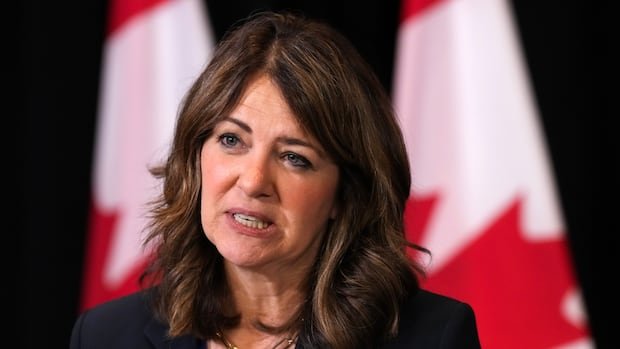The United Conservative government led by Alberta Premier Danielle Smith has confirmed its intention to defend a legal challenge to its school pronoun law. Heather Jenkins, press secretary to Justice Minister Mickey Amery, emphasized the government’s commitment to vigorously defend its position in court following the official court challenge filed by two 2SLGBTQ+ advocacy groups last week.
Jenkins highlighted that the legislation was designed to enhance the connection between parents and their child’s education, aiming to offer greater transparency, clarity, and consistency within the education and school community. The law, which came into effect at the beginning of the current school year, mandates parental consent for children under 16 to change their names or pronouns. Students aged 16 and 17 are not required to obtain consent but must inform their parents.
Advocates from Egale Canada and Skipping Stone argue that the law discriminates against gender-diverse youth, exposing them to potential harm and risks. They stress that the requirement for parental notification and consent only applies when a student seeks to alter their name or pronouns for reasons related to their gender identity, which they deem as discriminatory and targeting a vulnerable group of young individuals.
The court application also highlights the predicament faced by gender-diverse students who do not feel safe coming out to their parents or are not yet ready to do so. Premier Smith defended the law, asserting that parents should be informed about their children’s choices, portraying the government’s restrictions as reasonable and necessary for children under parental supervision.
The legal challenge in Alberta mirrors similar debates in other provinces, such as Saskatchewan, where a comparable pronoun law was implemented in 2023. Last year, Saskatchewan’s Premier Scott Moe used the notwithstanding clause to uphold the province’s pronoun rules amidst legal challenges. This clause allows governments to override specific Charter rights for a limited period.
In addition to the pronoun law, the UCP in Alberta has introduced controversial measures affecting transgender individuals, including a law preventing transgender athletes aged 12 and above from participating in female amateur sports based on their assigned sex at birth. Furthermore, Egale and Skipping Stone have contested another Alberta law prohibiting doctors from offering gender-affirming treatments to youth under 16, which is currently under a temporary court injunction pending appeal by the government.
The opposition NDP Leader Naheed Nenshi criticized the UCP government, accusing it of diminishing the rights of vulnerable groups through the implementation of these laws. Nenshi described the government’s actions as contradictory to their professed commitment to freedom and rights.

